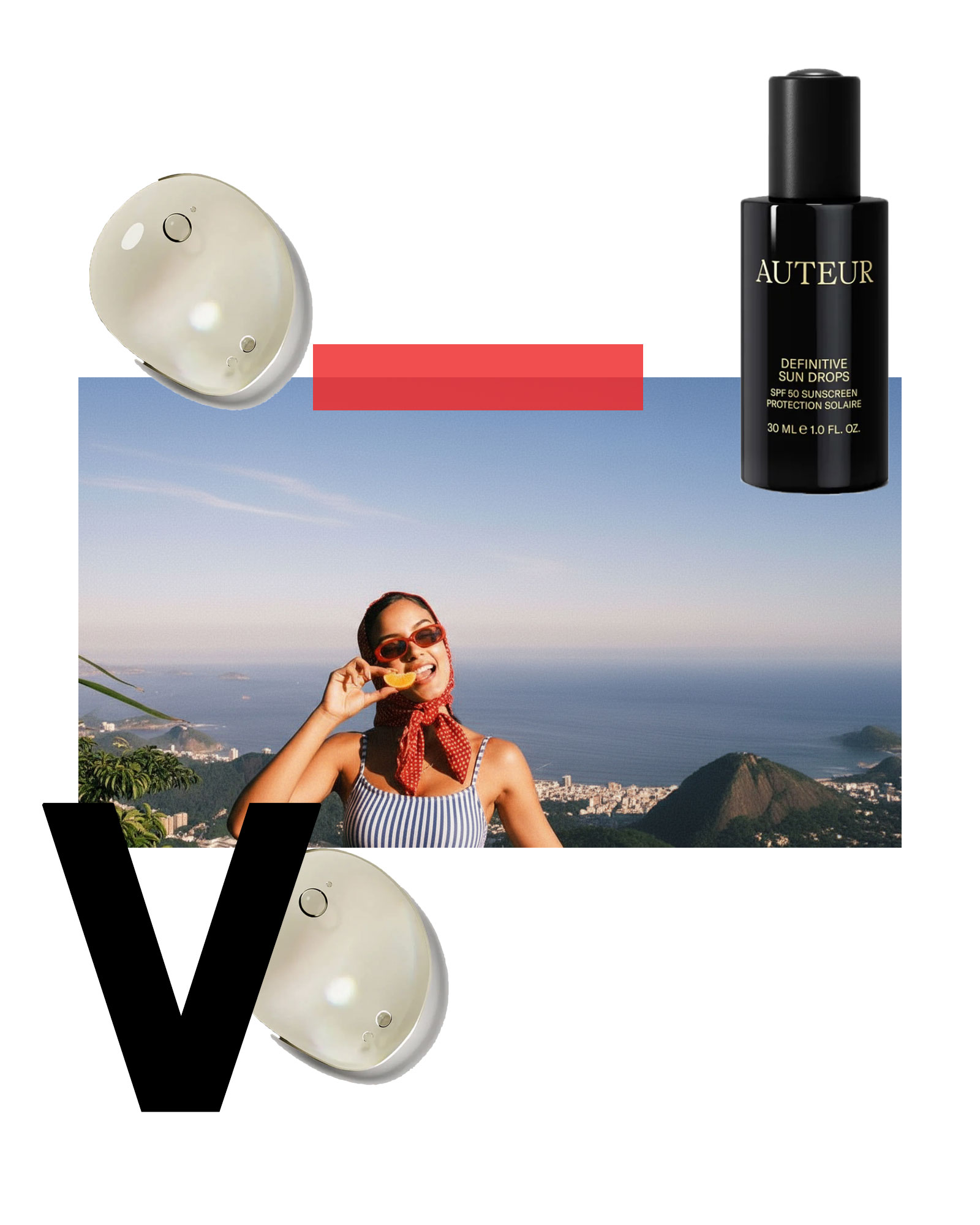
WHAT IT DOES:
The beauty of Vitamin A is that it encourages rapid skin cell turnover, which ultimately addresses a multitude of skin concerns. Retinol is effective for large pores, fine lines, wrinkles, acne, pigmentation, skin laxity and dull or uneven skin tone.
HOW IT WORKS:
Retinol, retinoids and retinal are all derivatives of Vitamin A at different stages within their molecular structure. It can be hard to make sense of each variant as they are eventually converted to retinoic acid, the final product that has powerful skin-changing capabilities.
Retinol is perhaps the most well-known Vitamin A derivative and common in over the counter products. It is ideal for common concerns like fine lines, pigmentation, large pores and textural irregularities.
Retinoids are a more powerful derivative of Vitamin A than retinol. Retinols are eventually converted to retinoids by the skin, the final stage in the conversion prior to retinoic acid. Retinoids are available in prescription form only and are best suited to severe skin concerns such as cystic acne.
Retinal is a variant of retinoids and is the most intense and potent version of Vitamin A.Knowing both when and how to use retinol properly is the key to its success.
MG SAYS:
It’s best to introduce retinol slowly into your skincare regime to avoid any irritation.Generally, the side effects of retinol are limited to a little dryness and redness - though I definitely recommend easing your skin into it, slowly but surely. Start by including a retinol serum two to three times per week and eventually work your way up to nightly use. Incorporate a retinol serum after your evening cleanse prior to applying your eye care and night cream every other night, eventually working up to nightly use. As with the introduction of any new skincare product it usually takes three or so months to see results. As with the introduction of any new skincare product it usually takes three or so months to see results. Consistency is key.Retinol can be used by anyone, aside from those with hypersensitive or compromised skin. That said, Retinol-based products have come leaps and bounds and there are now many lower dose, time release formulas that are far better tolerated and more gentle on the skin. These products are a good option for even the most sensitive skin types amongst us. The benefits of retinol on your body are equal to the benefits of retinol on your face. I recommend employing a retinol moisturiser to target any unwanted hyperpigmentation on your body - or targeting chest and back acne.
WHAT IT DOES:
Vitamin C is one of the most popular and impressive ingredients in skincare. And for good reason, Vitamin C is perhaps the most effective vitamin in fighting against free radical damage while also brightening, treating sun damage and strengthening collagen production. It works to improve the overall texture of the skin, and when combined with other key ingredients can be a gamechanger in a morning routine.
HOW IT WORKS:
A powerful antioxidant, Vitamin C is a hero in destroying free radicals and working to improve any leftover damage. It inhibits melanin production, making it effective against pigmentation and the overall lustre of the skin. When combined with other carriers such as ferulic acid or Vitamin E, Vitamin C’s impressive properties can be supercharged.
MG SAYS:
Vitamin C can be great to use under sunscreen as research has shown that it boosts sunscreen’s efficacy by defending skin from free radicals produced by sun exposure. The skin can be more sensitive when using Vitamin C as the new skin cells have not been exposed to sunlight, so be sure to always wear an SPF in conjunction.
WHAT IT DOES:
A much-loved skincare stalwart, Vitamin E is a naturally derived, potent substance that works to supercharge other antioxidants, accelerating their results and efficacy. Vitamin E is best known for its ultra-nourishing, ultra-hydrating properties and is great for soothing and rejuvenating the skin. It’s also a potent anti-ageing ingredient, enhancing the protective functions of the skin to withstand free radical damage while decreasing the appearance of fine lines, wrinkles and scars by ensuring cells remain hydrated and supple.
HOW IT WORKS:
Thanks to its antioxidant properties, Vitamin E helps fight off free radicals and prevent further damage by increasing anti-inflammatory support systems. Its efficient hydrating mechanisms leave the skin’s barrier plump and firm, arming it with ample hydration.
MG SAYS:
Naturally present in the skin but depleted with age and sun exposure, topical application of vitamin E can have many benefits. As an antioxidant, it can fight free radicals and offer substantial anti-inflammatory support. It can also keep skin hydrated by strengthening the skin’s natural barrier and therefore reducing water loss.
WHAT IT DOES:
Vitamin F is composed of polyunsaturated fatty acids (including linoleic acid, arachidonic acid and vaccenic acid). As it’s liposoluble, Vitamin F helps cells in the epidermis to retain water content and prevent water from escaping through evaporation. Vitamin F is essential to the lipid barrier that lies on top of the epidermis, which improves the skin’s resistance to external aggressions.
HOW IT WORKS:
When applied topically, Vitamin F supplies skin with a collection of omega fatty acids which are wonderful for the skin’s barrier function. As a carrier oil, Vitamin F facilitates the functions of other active ingredients, making them even stronger and allowing for proper penetration of actives and acids.
MG SAYS:
People wax lyrical about oils such as rosehip, chia and argan for good reason – mainly because they contain Vitamin F – a carrier oil that can deeply penetrate the skin’s surface and take other ingredients with it.